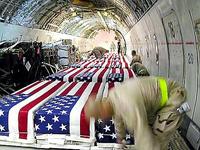| Moblogging from the front and the new Reformation | 2004-05-26 16:33 4 comments |
 by Flemming Funch by Flemming FunchClay Shirky talks on Corante about how grassroots sharing of powerful information and pictures are changing things: Jaques Barzun, author of the marvelous history of modernity From Dawn to Decadence (1500 - present), makes the point that the Catholic Church as a pan-European political force was done in by the Protestant Reformation, itself fueled by the printing press. Once the Church lost the ability to control the direct perception of scripture, thanks to the printing of (relatively) cheap bibles in languages other than Latin, their loss of political hegemony followed.No wonder Donald Rumsfeld wants to forbid American soldiers from having camera phones. But it is hopefully too late. Shirky's right: we can maybe more easily ignore words, but pictures are much harder to get around. Rumors of atrocities don't carry nearly the same weight as pictures of them. Particularly unregulated pictures leaked by people who just happened to be around with a digital camera. What made 9-11 hit so hard was to a large part the pictures. The video of the burning and collapsing towers, and the pictures of the individuals who died, and their families. But that came through the centralized media. Now imagine that the government and media could no longer control what images are widely shared. That, whatever happens, some casual bystander will have taken pictures, and the pictures will be on a bunch of people's blogs the same day. |